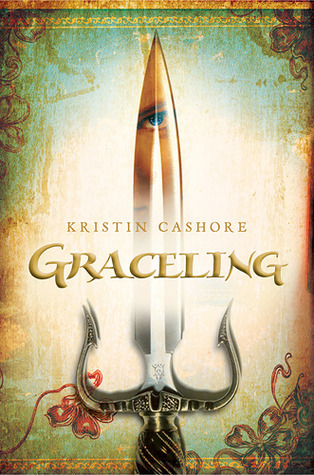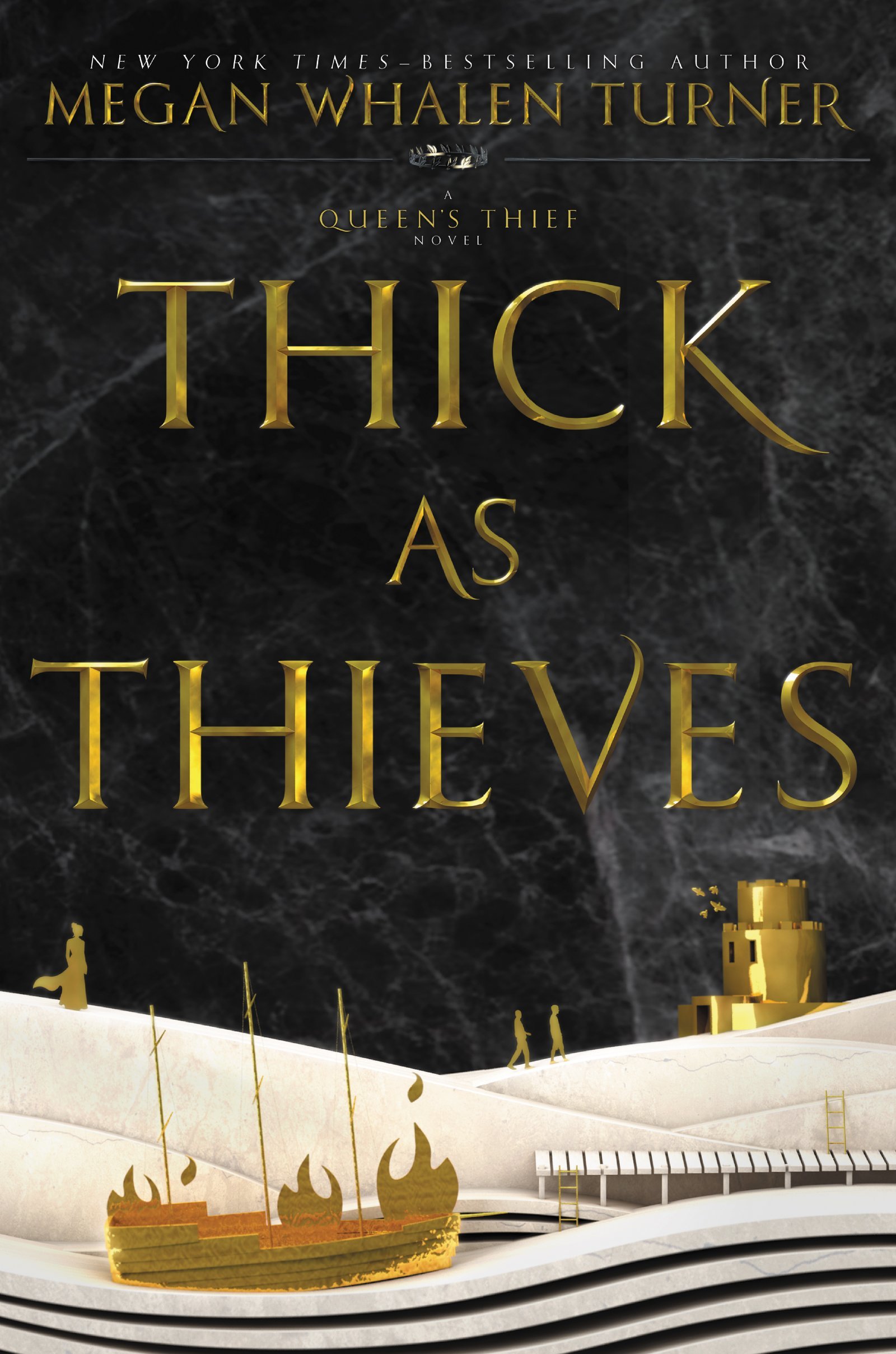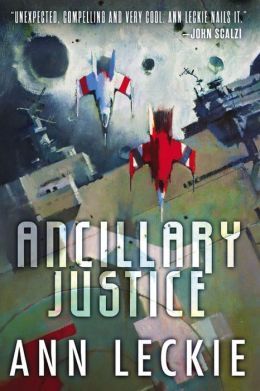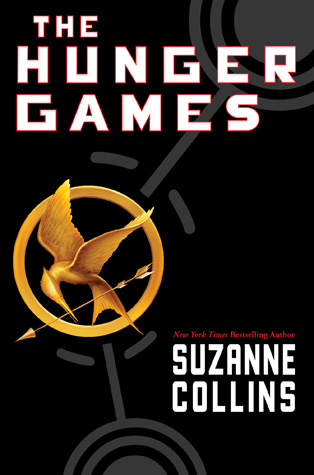A couple of weeks ago, Reactor released an article about the best sci fi and fantasy books of the 21st century, as decided by the Reactor staff and various SFF authors. Following this, they put out a google form where readers could nominate their own best SFF books of the 21st century - so I decided to submit mine.
And then they actually decided to feature three of my quotes in the follow-up article!
I'm very pleased and surprised. I saved what I wrote in the form, just for my own reference, so I thought it would be fun to share my personal list of nominations in full. Disclaimer, of course, that if I were just making a list of my personal favorites, this list would be a bit different. "Iconic" is an interesting adjective to choose for lists like these, I think, because it denotes not just personal attachment but also cultural impact. As a result, while I like all of these books, some of them might be more broadly iconic than others. All of them are iconic to me.
Let's get into it!

THE GOBLIN EMPEROR by KATHERINE ADDISON
When people ask my what my favorite book is, my mind tends to go blank. But this book is always one of the first to pop back into my mind. It sneaked up on me as a favorite - I rated it 4 stars at first and didn't realize I loved it until it occurred to me, months later, that I couldn't stop thinking about it and comparing it to other books. I guess you could say it has everything I like: beautiful language, intricate worldbuilding, and a determined focus on doing your best to treat others well, even when you must operate within the limits of a cruel system.
I placed The Goblin Emperor first on my list because I often consider it to be my favorite book. Which is kind of a big thing to say, as someone who's notoriously indecisive AND who reads 80+ books a year.
Unfortunately, it seems like not very many of the other readers who submitted their lists felt the same way, because The Goblin Emperor didn't get a mention in this article. That's tragic and heartbreaking and extremely sad, but it's also...life. If other people won't give this book its flowers, I will simply have to buy more flowers for this book. And I will!

GRACELING by KRISTIN CASHORE
If this book isn't iconic, it should be. It should be! This book is what most romantasies and fantasies-with-romance WANT to be, and fail to imitate. A slowburn romance between two people who see each other as equals, a compelling (and horrifying) villain, and a really beautiful arc of a female lead coming into her own. The rest of this series is also incredible and deals with themes of bodily autonomy, trauma, and healing much more deftly than people tend to expect from a young adult book (people should expect more from young adult books. Some of them, like Graceling, are literally incredible).
Graceling did not make it onto the main top 10 list in the Reactor article, but it did get an honorable mention along with a few other YA SFF books, which made me happy to see! Strange the Dreamer (my beloved) also got a well-deserved mention.
I know that Graceling has been around for a while, so in a way, maybe it's had its moment, but I think it still deserves to be more widely known and loved. Katsa is a protagonist that I keep coming back to and appreciating, and the same is true for Po as a love interest. I think it's a special thing for a young adult book to be able to continue to resonate with readers as they grow out of the target age range.

THICK AS THIEVES by MEGAN WHALEN TURNER
It's very difficult to pick only one book from the Queen's Thief series, but I heroically managed to do so, and picked this one. This book is about the unlikely alliance and friendship that develops between a slave and a soldier that are on the run, trying to make it from the slave's home to the soldier's. It's also about assumptions, perception, and how what we believe of people (including ourselves) impacts our relationships with them. Kamet thinks that Costis has been sent to steal him away so that he can eventually be killed. He doesn't think Costis can think of him as more than a slave because he doesn't see himself as more than a slave, and neither does he think of Costis as more than a soldier. But gradually, both these beliefs are challenged as they're put to the test again and again. I could go on and on, but basically, I love this book.
As mentioned in this quote, I find it very difficult to choose a favorite from the Queen's Thief series. The rankings of each book constantly shift in my mind, especially depending on which ones I've recently reread. But Thick as Thieves is pretty much always at the top.

ANCILLARY JUSTICE by ANN LECKIE
I think of this series as a sort of "sci fi of manners." Although it deals with questions of empire, colonization, and assimilation, I feel like the heart of all of those is "How do we treat others, and what do we owe them? What happens when we stop accepting justifications for treating certain people better than others? What happens when we begin holding ourselves to a higher standard?" In other words, you could say it's a book about the responsibilities of living in a society. You could say it's a book about love, and revenge, and drinking tea. Mostly, you could say it's very good.
This is the first quote/blurb I wrote, and I'm really happy that Reactor chose to feature it! I've been thinking about the Imperial Raadch trilogy a lot ever since I finished it, but even more so in light of recent political goings-on. "What do we owe each other?" and "When do we begin holding ourselves to a higher standard?" are questions that only seem to get more relevant, and I wish I better understood how to push for change in response to those questions. I'm really envious of Breq's ability to navigate Raadch society so seamlessly in order to use the power she's been granted to achieve her goals (more equality, more kindness).
Also, I'm linking to my Goodreads review like I have for all the other books so far, but...I feel the need to insert a preliminary disclaimer that my regard for this series has grown a lot since I first read Ancillary Justice and wrote that review. So if it seems surprisingly cool in tone, that's why. This series didn't really cement itself as a favorite until I read the second and third books, which happened much more recently.

THE FIFTH SEASON by N.K. JEMISON
Obviously. Obviously! A sweeping science fantasy trilogy-opener about a world tearing itself apart with one apocalypse after another and the earthquake-controlling magic users who might be able to fix things...of course it's iconic. It's sort of an easy answer, but like, that's because it's true. Some people claim the second and third books fall off in quality but I don't personally think that's true. ~Kerensa
Reactor trimmed my last sentence here, which I think was a good choice. Haha.

SOME DESPERATE GLORY by EMILY TESH
Is including a recent Hugo winner cheating? If so, I'll happily cheat, AND brag that I knew this book was good BEFORE everyone else did...so there! (I read an ARC, so this may even be true). Where Some Desperate Glory lost some readers with its brainwashed, unlikable protagonist, it won me over immediately. Maybe I shouldn't have been rooting for her right away, but I was - mainly because I was excited to see what would happen when her narrow, restricted worldview was challenged. This book manages to be both a coming-of-age story about wresting yourself from the control of a cult, AND a really genuinely good space opera.
Some Desperate Glory, you will always be iconic to me. Emily Tesh's next release, The Incandescent, is one of my most anticipated reads of next year. And actually, I've been anticipating it since I first heard her talk about it at an event for Some Desperate Glory last year. I'm hoping I can get around to reading my ARC of it soon, but my immediate TBR is a little hectic at the moment, so we'll see.

GIDEON THE NINTH by TAMSYN MUIR
Maybe now is the time to say that I've never been OVERLY fond of this book's most popular tagline, "lesbian necromancers in space." First of all, Gideon isn't a necromancer, and second of all, they're only "in space" for one chapter of shuttle travel. By that logic, any book set on A Planet (which...most of them are) could be books that are in space. But I'll get off my soapbox now and say that this book is iconic because it has one of the most unique narrative voices I've ever read. Tamsyn Muir plays around with the written word and with tone in a way that I've barely seen anyone do - although I'd love to see more people try, even if they fail, because it's so engaging. This book is delicious in its complexity and rereadability, and you have to admire it for how devoted almost every fan of it is.
They didn't trim this ridiculously wordy statement at all, which makes me laugh. I never expected Reactor to platform my soapbox rant about how this book is Not Actually In Space, Dammit! But like, more power to them. I stand by all of this.

THE HUNGER GAMES by SUZANNE COLLINS
It's hard to talk iconic without mentioning a book that has kicked off a multi-million dollar multi-media franchise. It shifted the landscape of YA literature, as we all know, and made a strong case for using first person present tense. But The Hunger Games isn't just iconic because of its pop culture presence. It remains compulsively readable to the point that when I pick it up for a reread, I usually can't put it down until I've read the whole book in a single sitting. A lot of books are tempted to over-explain or talk down to their readers, and tell them how to feel. The Hunger Games never does. You just see, and marvel in horror.
Although I do genuinely really like The Hunger Games, this is definitely an example of a pick that I selected more because of its measurable cultural impact than because my personal love of it. But it definitely is iconic. I just don't think it would end up in a top 10 of my personal absolute favorites.

FIREBORNE by ROSARIA MUNDA
This is the first book in an excellent YA trilogy that explores politics, classism, revolution, and what happens when revolution goes awry - when you can no longer believe in the revolution you're fighting for. There are dragons, which is always nice, but for me another of the main draws is the yearning between the two main characters. But it's not just the two leads that make the story; this book creates a constellation of characters that you can't help find compelling, even when you'd also kind of like some of them to take long walks off of short cliffs.
I don't think Fireborne made it onto the list - not even as an honorable mention in the YA section! Alas. I will keep preaching from the rooftops until the day Fireborne gets the recognition it deserves.
Which reminds me, I really need to, like...actually write a review of it at some point.

ALL SYSTEMS RED by MARTHA WELLS
This one's a little too close to my heart to easily put into words. I'll just quote Ann Leckie, and say that I love Murderbot.
I've been rereading the Murderbot Diaries recently, which I think is part of why I can't quite fully express my feelings on them. For one thing, I have so MANY feelings about so many aspects of Murderbot and its world and its journey. Where do I even begin to sum up those feelings?
Murderbot deals with themes of humanity, connection, loneliness, the alienation we feel under hyper-capitalism, trauma, bodily autonomy...and even more. It's a story with a pretty bleak setting, where enormous corporations use their power to exploit people in creatively terrible ways (including creating a new class of people that aren't legally people at all), but the reason why it has such sticking power is that the emphasis is not on the cruelty of this world, but the people who are kind. Murderbot is an enslaved sentient being who has every reason to distrust the world, and yet it continues to come across people (both human and bot) who it finds to be worth protecting. In this way, it manages to be much cozier for me than works that brush past or avoid conflict and high stakes.
And then, as a bonus! Originally my 10th pick was Six of Crows, but at the last second before submitting my answers, I decided that I needed to be true to myself and replace it with All Systems Red. I hadn't originally picked All Systems Red because I remembered it being in the author/staff version of the list, but after some thought, it's just too much of a favorite of mine to ignore. And as a Martha Wells stan, I can't do something as out of character as snubbing Martha Wells.
But here is the unsubmitted blurb I wrote for Six of Crows (which did get a shoutout in the YA honorable mention section):

SIX OF CROWS by LEIGH BARDUGO
Six of Crows has been slightly displaced in my heart by more recent favorites, but I still can't deny its impact. It has breakout popularity among adult fantasy readers and developed an online fandom in its own right (impressive for books in general, but perhaps even more impressive for a spin-off of a trilogy that didn't have nearly the same fandom pull). It's a thrilling heist with an expertly sketched ensemble cast, and I hope someday it gets the screen adaptation we all deserve.
And there we have it! My submissions for the 10 most iconic books of the 21st century. I thought it was really interesting that at the end of Reactor's article they (or rather, Christina Orlando) mention that more sci fi books were submitted than fantasy books. I wonder why that is?
I typically think of sci fi as being a bit more niche than fantasy, even though both are kind of inherently niche by nature of being genre fiction. Fantasy seems to break into the mainstream a bit more easily than sci fi does. Also, sci fi that DOES break containment seems to be more likely to be literary in bent (and usually near-future, not space opera) whereas fantasy that breaks containment seems more likely to be consumable, "escapist" reading.
I don't think either genre is inherently better or more literary or more consumable than the other, but trends are interesting to observe and analyze!

No comments:
Post a Comment